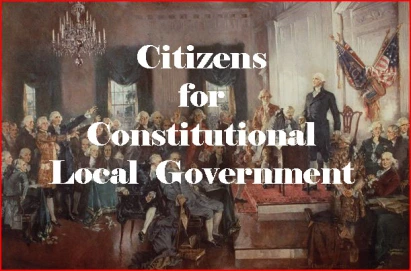Still think CAI is on your side and can be trusted to act in good faith? Here’s the latest CAI propaganda bordering on a violation of the Rules of the AZ Supreme Court, R42, E.R. 3.3, (found in Rules in every state):
“Candor Toward the Tribunal: (a) A lawyer shall not knowingly:
(1) make a false statement of fact or law to a tribunal or fail to correct a false statement of material fact or law previously made to the tribunal by the lawyer;”
(3) offer evidence that the lawyer knows to be false.
(b) A lawyer who represents a client . . . and who knows that a person intends to engage, is engaging or has engaged in criminal or fraudulent conduct related to the proceeding shall take reasonable remedial measures, including, if necessary, disclosure to the tribunal.”
In CAI’s amicus brief to the AZ Supreme Court in CAO v. PFP Dorsey (Case No: CV-22-0228-PR, 2024), we see repeated half-truths about who CAI represents and what are its purpose and functions. Some excerpts from “Interest of CAI as Amicus Curiae” (emphasis added),
- is an international organization dedicated to providing information, education, resources and advocacy for community association leaders, members
- CAI’s more than 43,000 members include homeowners, board members
- serving more than 74.1 million homeowners
- CAI is representing not only itself, but also its tens of thousands of members on this important issue.
CAI misrepresents its position and status. It’s a miniscule organization and no way close to the estimated AARP’s 66% of 55 plus persons. The shortcomings include:
- Failure to state it’s a business trade nonprofit, 501(c)6 and not an educational (c)3; (everybody knows does not count)
- As a business trade entity, it is not allowed to have HOAs, the consumer of CAI’s member services, as members;
- Not informing the court that “individual volunteers” constitute a minority class of membership, and
- Failure to inform that the Management of CAI is controlled by a Board of Trustees in which its “volunteers” members are only 13% of the Board that is dominated by the management class;
- · a 15-member Trustee Board supported by 2 groups of 12 representatives and the Homeowners Leadership Council of only 6 representatives;
- The current Trustees Board has a president from Dubai and a president-elect from the US, both managers; 6 more managers; 2 “HOA managers,” 2 lawyers and 3 others. (See Board of Trustees).
- Failure to inform that no HOA board of directors, to my knowledge, has granted CAI the right to represent or speak for the HOA before government tribunals;
- · Exaggerating its scope of influence and alleged representations when its total membership is less than 36% of HOAs or persons living in an HOA. (Based on 2007 & 2012 data, See HOA homeowner membership in CAI is a mere 36%; Who controls CAI and its 50 state HOA lobbying committees?)
- · As of this writing, CAI claims 45,000 members; 75.5 million residents, and 365,000 HOAs. With an estimated population of some 331 million people, 23% live in an HOA — .06% of HOA residents are CAI members!
Would you consider the brief being honest and forthwith to the Court?
